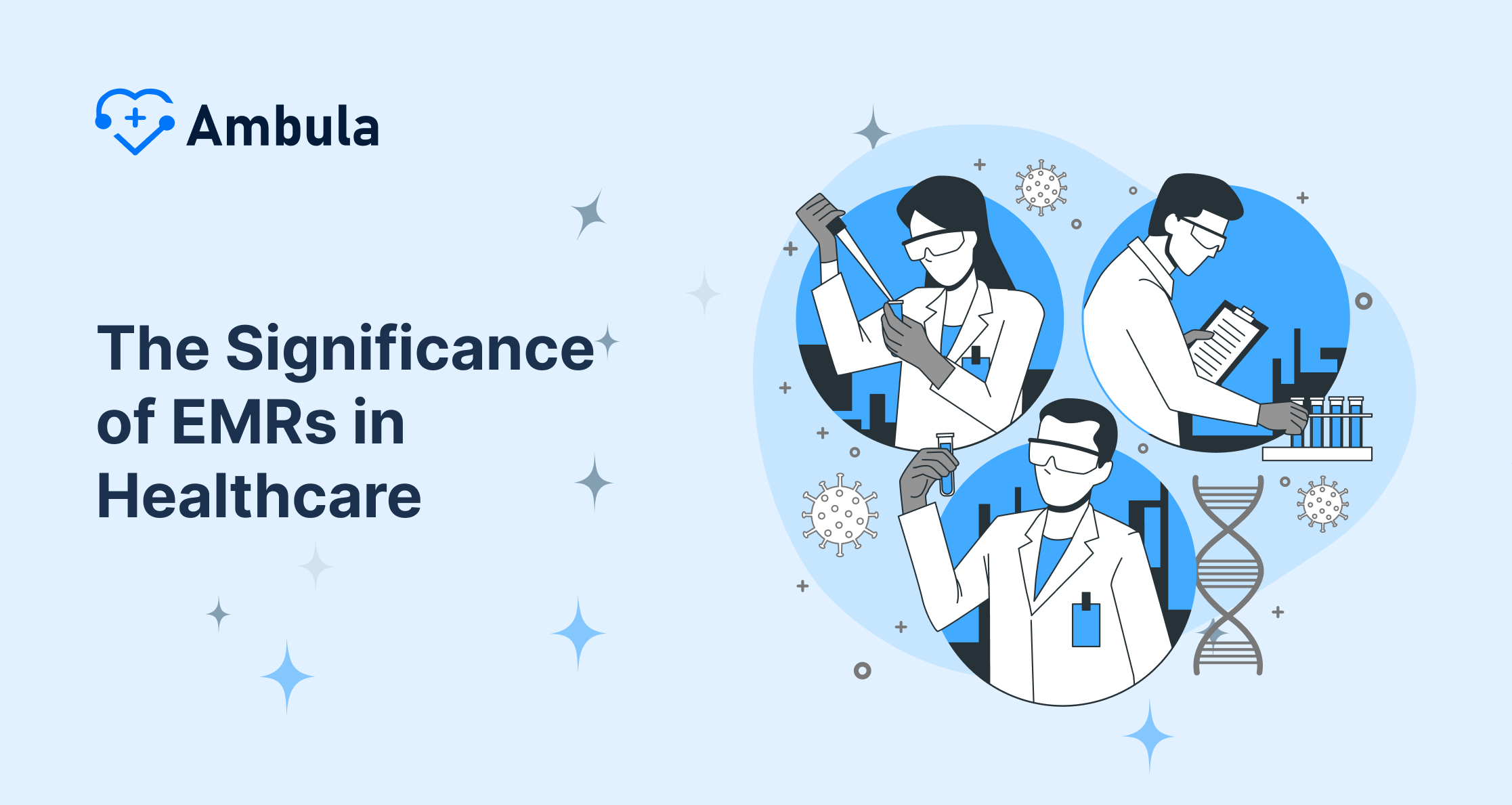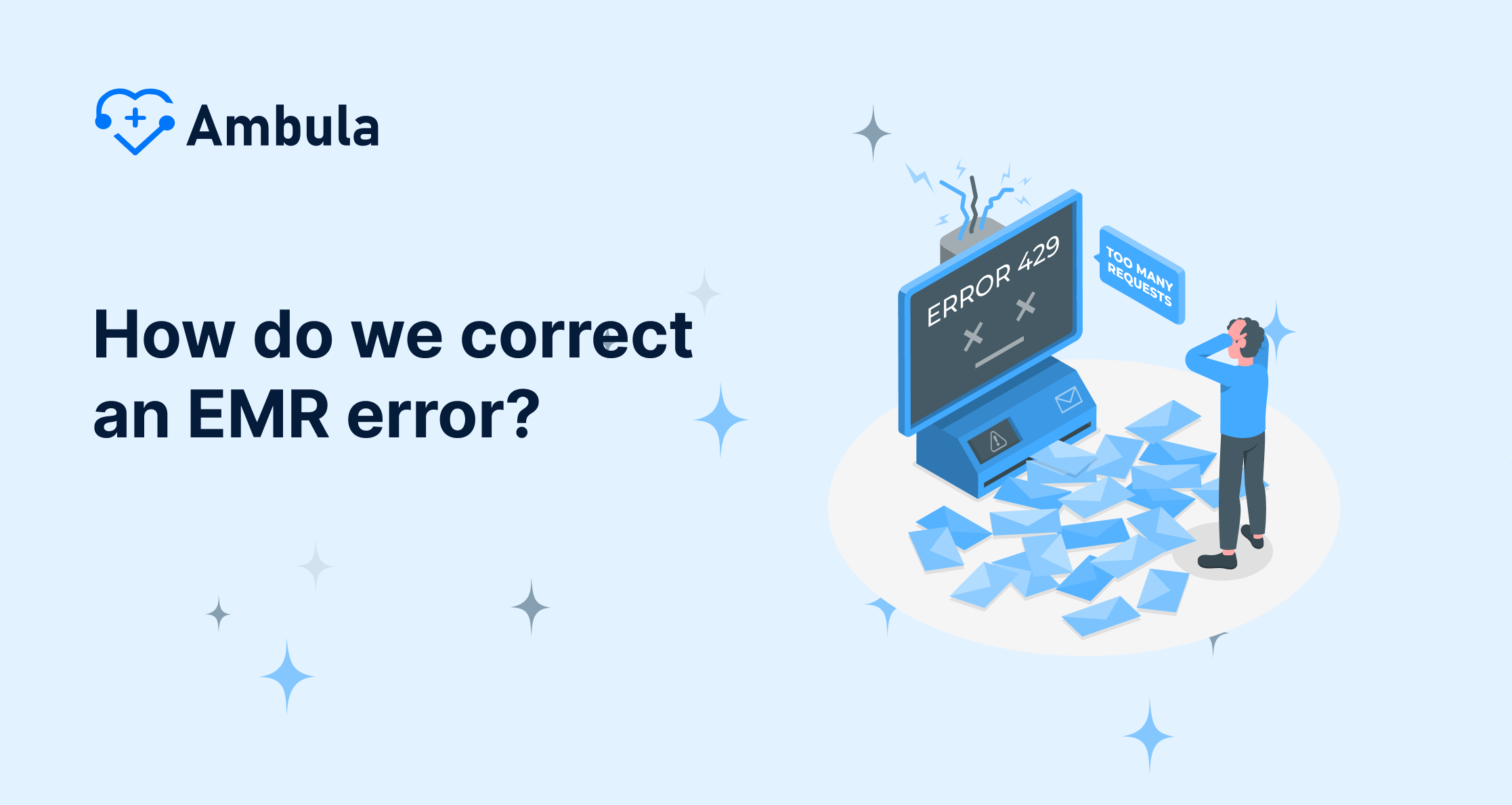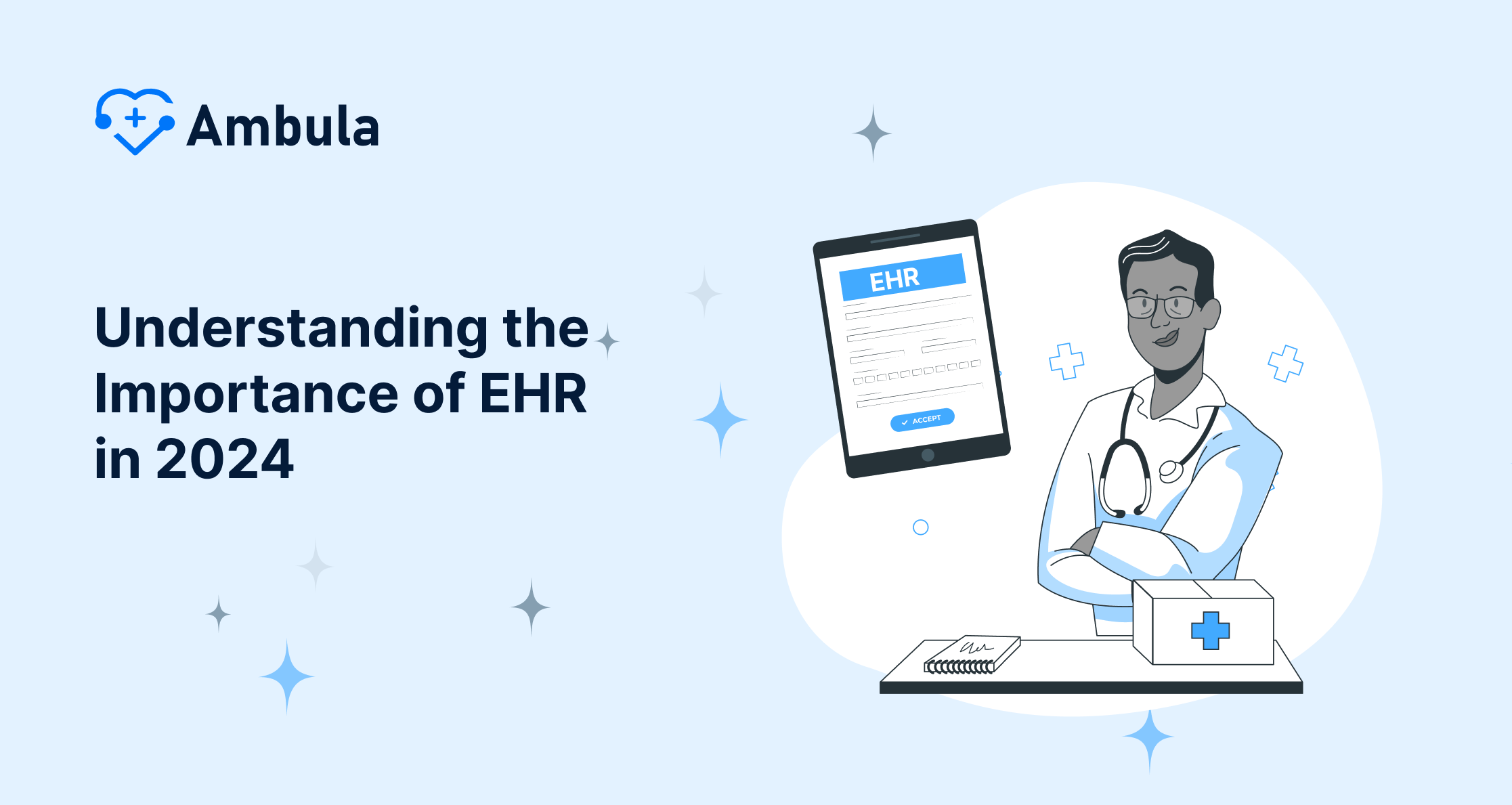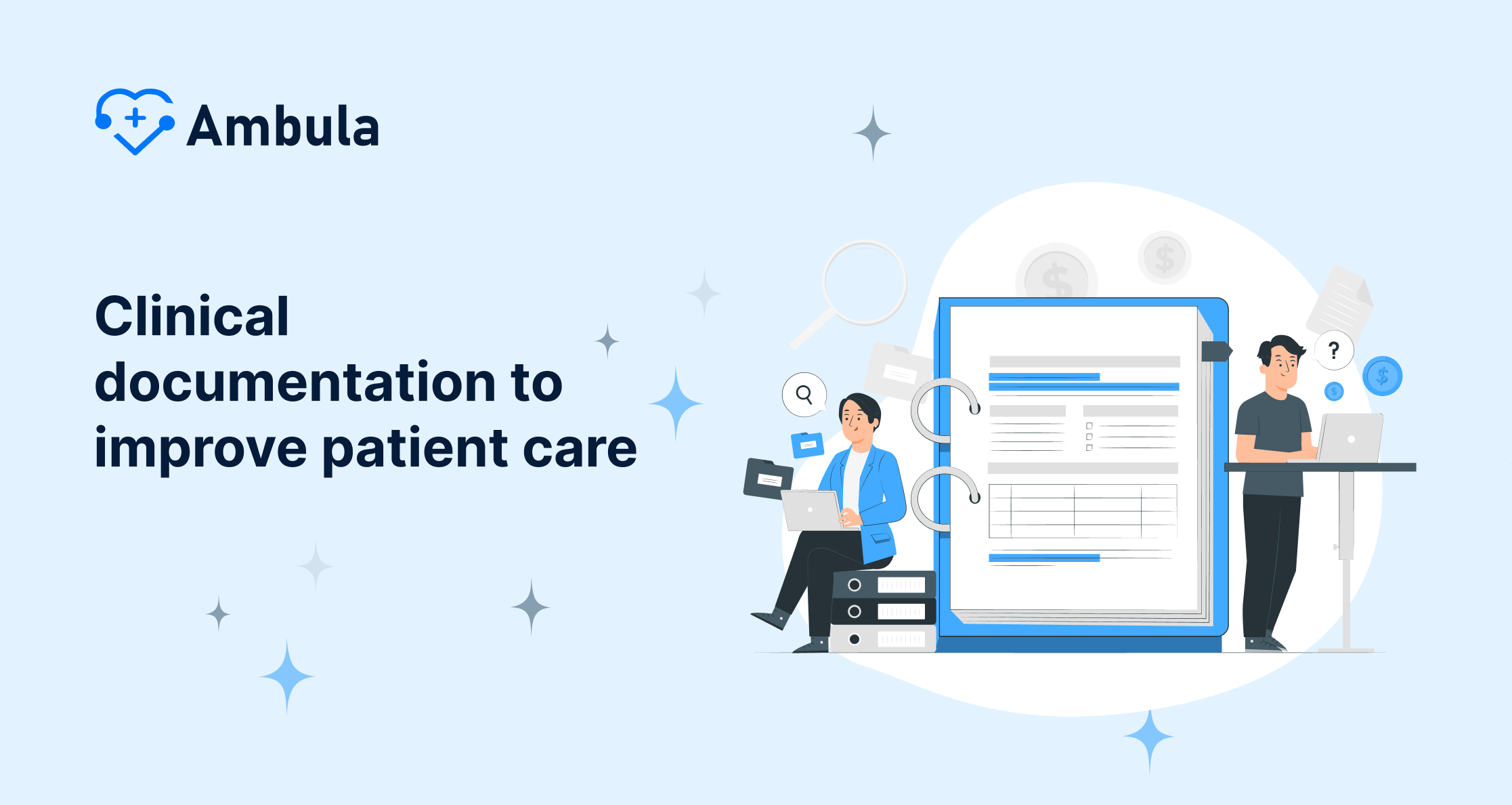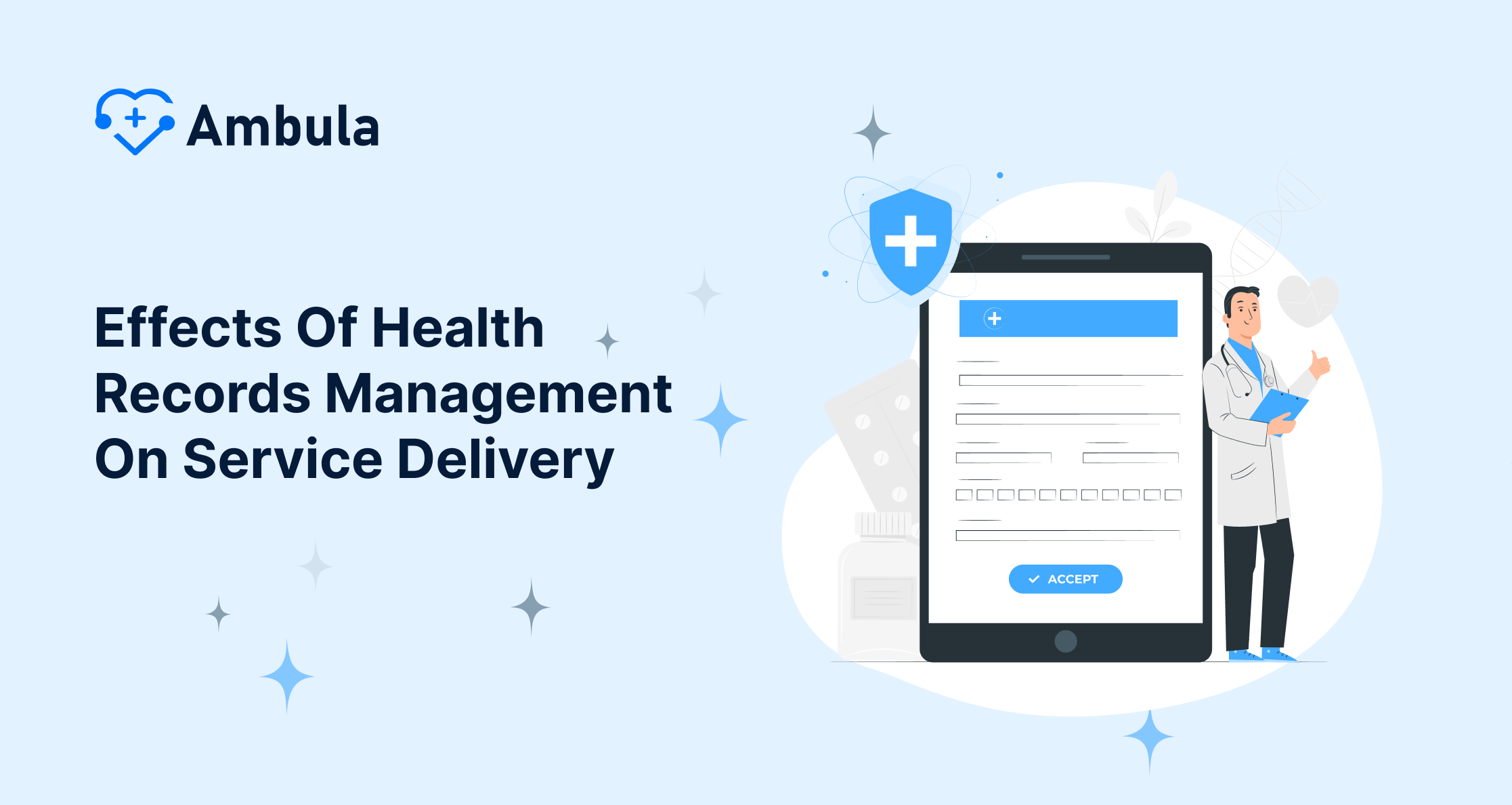Topics:
- The importance of EMR in healthcare
- What is the EMR system in healthcare?
- The benefits of emr in healthcare?
- What is the future of emr in healthcare?
Your medical practice will never be the same when you learn what EMR is and why you need to know it. By definition, EMR systems or electronic medical records are software applications that boost healthcare management. EMRs are like a digital form of your patient’s medical history. This means they contain the records of the patient’s previous medical care. What makes EMRs effective? They make sure you interact better with your patients. Understanding the definition of EMR and what it stands for in healthcare can significantly enhance your practice.
Firstly, they analyze the history of medical records explicitly. Secondly, they give you smart access to the health records within your practice. To sum it up, EMRs have many different integrated functions that enable practices and clinics to function better. This includes making practices more apt financially and facilitating things for you and the patients. Of course, EMRs will not leave any time soon because they enhance the healthcare experience in terms of satisfaction. Thus, any practice implementing EMR systems is booming and making patients and healthcare providers happier.
The importance of EMR in healthcare
Today’s world runs fast. What is EMR, and why do you need to know it will help you stay ahead? Everybody is in a race against time. EMRs make everything right in front of you at any time. If you are a patient or a doctor, you probably don’t like spending more time sorting medical charts. Luckily, EMR provides all the health data you need in a digital version of patient records.
The difference between hard copy records and EMR is that the latter is more user-friendly. For example, information in EMRs comes in pie charts and graphs for various illnesses. Most importantly, EMRs save a big load of space by eliminating your need for paper and offer optimization for your workflow. Also, with EMRs, you’ll be able to reach out to other medical practices and labs more easily. Moreover, patients also get their share of EMR benefits with more privacy and security regarding their health records. Finally, with EMRs, everyone makes better everyday decisions regarding medical data. And that is what EMR is in medical terms, highlighting the difference between EMR and EHR.
Check out these articles after you’re done
What is the EMR system in healthcare?
You know what EMR is and why you need to know, but what about EMR systems?
To start with, EMRs are what their name suggests exactly, digital versions of hard-copy medical charts. Yet, what makes them more effective and efficient for physicians and patients is the strong experience they get out of them. Undoubtedly, some of the EMRs out there offer the best services when it comes to medical imaging software developers. They involve previous medical history, allergies, diagnosis, medications, immunization dates, and lab results.
Your patient will make better calls with their health matters. And you can track appointment dates and screenings while managing your billing competently. Besides, the range of errors is narrower with electronic medical records, if not null. You will receive a big spectrum of conditions with EMRs. Also, your staff can work on EMRs daily to process insurance cases and payments. Plus, they can schedule patient meetings, share information with other staff, and continuously update data.
With the ever-evolution of technology, many companies offer HIPPA compliance packages and EMR applications. Besides recording all the data, the EMR system manipulates and evaluates it for the benefit of the user. For example, when a doctor prescribes a new medication, EMR systems test potential effects. They procure the best healthcare services through collaboration with other labs and institutions.
What is the EMR system in healthcare?
You know what EMR is and why you need to know, but what about EMR systems? Understanding the EMR system’s meaning can further enhance your practice’s efficiency.
To start with, EMRs are what their name suggests exactly: digital versions of hard-copy medical charts. Yet, what makes them more effective and efficient for physicians and patients is the strong experience they get out of them. Undoubtedly, some of the EMRs out there offer the best services when it comes to medical imaging software developers. They involve previous medical history, allergies, diagnosis, medications, immunization dates, and lab results, all crucial aspects of health records management.
Your patient will make better calls with their health matters. And you can track appointment dates and screenings while managing your billing competently. Besides, the range of errors is narrower with electronic medical records, if not null. You will receive a big spectrum of conditions with EMRs. Also, your staff can work on EMRs daily to process insurance cases and payments. Plus, they can schedule patient meetings, share information with other staff, and continuously update data, making practice management more streamlined.
With the ever-evolution of technology, many companies offer HIPAA compliance packages and EMR applications. Besides recording all the data, the EMR system manipulates and evaluates it for the benefit of the user. For example, when a doctor prescribes a new medication, EMR systems test potential effects. They procure the best healthcare services through collaboration with other labs and institutions, ensuring robust data sharing and compliance.
What are the benefits of emr in healthcare?
The core of what EMR is and why you need to know resides in the benefits. Before, we emphasized that EMR benefits are relevant to doctors and patients. So, what are they? Enhanced patient care and increased patient engagement are among the top benefits.
For patients:
1- Ability to access the records, see the prescriptions, and follow the required changes in lifestyle through an intuitive patient portal.
2- Get follow-up support like weblinks, reminders, and self-care suggestions
3- Make better health decisions
4- Identify patients who need preventive care and screenings
5- Enhance diagnosis and treatment
6- Track data and results in time
7- Quicker and better care
8- Fewer mistakes in comparison to paper records
For clinics:
1- Less wasted space
2- Optimization of the workflow
3- Reduction in operational costs
4- Scalability
5- Enabling outreach
6- Documentation and reminders
7- Research support
8- Erasing conflicting treatments
9- Better communication among the staff
10- No more duplicate tests
What features do you have to expect when you choose EMR software?
As a physician, selecting the right EMR software is a pivotal decision that can significantly impact the quality of patient care and the efficiency of your practice. An ideal EMR system should not only streamline your workflow but also enhance clinical decision-making through advanced technological features. Here are the essential features you should expect from a high-quality EMR system:
- Patient Charting: Digital recording of patient history, diagnoses, and treatment plans.
- e-Prescribing: Electronic generation and transmission of prescriptions.
- Clinical Decision Support: Alerts and reminders for best practices and potential issues.
- Lab Integration: Direct access to lab results and integration with lab systems.
- Scheduling: Appointment scheduling and management.
- Billing and Coding: Support for medical billing and coding to streamline financial processes.
- Patient Portal: Secure access for patients to view their health records and communicate with providers.
- Interoperability: Ability to share information with other healthcare systems and providers.
- Customization: Tailoring templates and workflows to specific practice needs.
- Analytics and Reporting: Tools for generating reports and analyzing clinical data.
What is the future of emr in healthcare?
In the upcoming decades, significant growth will reach EMRs, integration, high-tech devices, and interoperability between EMRs and EHRs. Searchability will become easier as well as the products. This is why EMR standardization regulation is very important. The world of healthcare tech is changing, which will pressure the industry to adapt faster and improve, especially with the push for meaningful use and certified EHR systems in specialty EHR fields.
In the end, EMR has revolutionized the medical industry. It has updated institutions for more efficiency and effectiveness and still is. Patients are cared for like never before, and clinical workflows make doctors’ and staff’s everyday life easier over time, significantly enhancing patient care.
For more information about EMRs, contact the Ambula Healthcare team: at (818) 308-4108! And now, check out our latest updates on EHR advancements.what does an EMR system do for patients?

